Tag Archives: Kubernetes
Kubernetes Certification Practice Test (Storage Volumes)
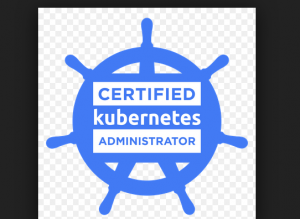
Kubernetes storage volumes is a very important concept in relation to how data is managed within a Pod (consisting of one or more containers) and also the data lifecycle. In this post, you will learn about some of the following in relation to Kubernetes storage volumes. There is a practice test which will help you test your knowledge in relation to the storage volumes concept in Kubernetes. This test could prove to be useful and helpful for Kubernetes certification examination for Certified Kubernetes Administration (CKA). It may also prove to be useful for interviews. Revision notes on Kubernetes storage volumes Practice test Revision Notes Kubernetes different volume types such as some of the following …
Kubernetes – Cheatsheet of Commands for Namespaces
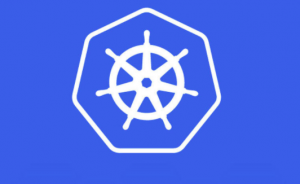
Kubernetes namespaces represents virtual clusters (logical entity with a unique name) created out of same physical cluster to enable allocation or split of cluster resources to different group of users. Namespaces are, primarily, used for managing cluster resources across dev/test/production environments by attaching different level of authorization controls and policies to different sections of cluster resources. In simpler words, it allows to create a community of users (developers, testers, production ops) in relation to some of the following: Cluster resources available for usage (pods, services, deployments, replication controllers etc) Who could do what with available cluster resources (policies) Number of resources that could be used by the community (quotas) This post …
Kubernetes – How to Create / Delete Namespaces; Why Namespaces?
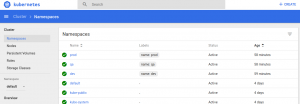
This article represents concepts related to Kubernetes Namespace and how to create/delete the namespaces. The following topics are discussed in this article: What are namespaces? How to create namespaces? How to work with namespaces? How to delete namespaces? What are Namespaces? Kubernetes namespace can be seen as a logical entity used to represent cluster resources for usage of a particular set of users. This logical entity can also be termed as a virtual cluster. One physical cluster can be represented as a set of multiple such virtual clusters (namespaces). The namespace provides scope for names. Names of resource within one namespace need to be unique. By default, Kubernetes starts with the following three …
How to Install Kubernetes in Ubuntu VM

This article represents a quick, crisp and to-the-point instructions on how to setup Kubernetes on Ubuntu VM. The steps below would help you get started with Kubernetes on your laptop with the help of Minikube. Minikube is a tool which runs a single-node kubernetes cluster inside a VM (virtualbox in this article) on your laptop. In this article, we will look at the steps for installing Kubernetes within an Ubuntu VM. The steps remain almost same for Ubuntu OS with the difference of how you enable the virtualization at BIOS level. Install VirtualBox (as part of installing a hypervisor) Enable Virtualization Install Kubectl Install Minikube Start/stop Kubernetes Install VirtualBox First …
Kubernetes – Practice Test / Interview Q&A on Service Discovery

This article represents concepts, revision / quick notes, and practice or sample test/interview questions and answers on Service Discovery topic of Kubernetes. These notes, Q&A could provide to be helpful for those appearing for Kubernetes administrator certification exams (CKA). Revision Notes – Service Discovery Kubernetes supports the following two modes of service discovery: Environment variable DNS Service environment details can be set based on the following format. Service name needs to be in uppercase. {SVCNAME}_SERVICE_HOST {SVCNAME}_SERVICE_PORT When using environment variables for service discovery, it is a mandate that the services must be created prior to the pods which want to access those services. DNS server creates a set of records for each service discovered via watching Kubernetes APIs. Services of type ExternalName can only be accessed …
Certified Kubernetes Administrator Sample Test on Services Concept

This page represents practice test consisting of questions and answers on Kubernetes. This practice test covers the topic such as Kubernetes Services. The practice test can prove to be very helpful if you are preparing to take Certified Kubernetes Administrator (CKA) certification examination in near future. It covers the Networking Concepts from CKA certification exam syllabus which can comprise of 11% questions in CKA certification exam. Check out other question sets on this page, Kubernetes Certification Exam (CKA) Sample Questions Sets. Revision Notes – Kubernetes concepts on Services A Kubernetes service is an abstraction which is used to define a logical set of pods. A Kubernetes service is assigned an IP address. In service spec definition, port refers to incoming port which is mapped to targetPort on Pod. By default, the value of …
Kubernetes Certification Exam (CKA) Sample Questions Sets

This article represents a series of practice / sample tests on some of the following topics as per the Kubernetes CKA exams syllabus. Kubernetes certification expert page also provides weightage associated with different topics. Topics Weightage Application Lifecycle Management 8% Installation, Configuration & Validation 12% Core Concepts 19% Networking 11% Scheduling 5% Security 12% Cluster Maintenance 11% Logging / Monitoring 5% Storage 7% Troubleshooting 10% These questions are intended to provide you with practice tests to test your knowledge on different Kubernetes concepts before appearing for Kubernetes certification (CKA) exams. This page will be updated from time-to-time as more practice tests are added. Practice / Sample Tests on Kubernetes Topics …
Kubernetes Interview Questions and Answers – Set 4
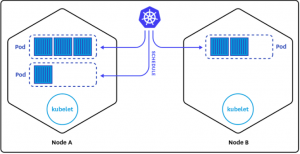
This page represents practice test consisting of objective questions and answers on Kubernetes. This practice test covers the topic such as Pod Lifecycle. The practice test can prove to be very helpful if you are preparing to take Certified Kubernetes Administrator (CKA) certification examination in near future. It covers the Core Concepts from CKA certification exam syllabus. Those preparing for interviews in relation with Kubernetes or cloud-native apps would also find these questions to be useful enough. These questions can as well prove to be useful for interns / freshers / beginners. Revision Notes – Kubernetes Concepts (Pod Lifecycle) A Pod status field is a PodStatus object which has got phase field. The phase of the pod is a simple, high-level summary of where the Pod is in its lifecycle Kubelet invokes …
Container Design Patterns for Kubernetes Pods Design

Here is a list of container design patterns which can be used to create useful grouping of containers (atomic unit) such as Kubernetes pods: Sidecar pattern Ambassador pattern Adapter pattern These patterns advocates usage of additional containers to complement the primary / main container and have these containers form an atomic unit. The usage of additional containers as recommended by design patterns are based on some of the following design guidelines: Separation of concerns Containers’ reusability (Cohesive containers); Recall Uncle Bob’s (Robert Martin) single responsibility principle (SOLID) when working with object-oriented programming These patterns results in creation of atomic unit of containers with a set of containers acting as core …
Kubernetes Interview Questions and Answers – Set 3
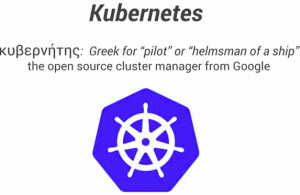
This page represents practice test consisting of objective questions and answers on Kubernetes. The following topics are covered as part of this practice test / quiz: Container hooks and related lifecycle Pods The practice test can prove to be very helpful if you are preparing to take Certified Kubernetes Administrator (CKA) certification examination in near future. It covers the Core Concepts from CKA certification exam syllabus. Those preparing for interviews in relation with Kubernetes or cloud-native apps would find these questions to be useful enough. These questions can prove to be useful for interns / freshers / beginners. Revision Notes – Kubernetes Concepts (Container Hooks / Pods) Kubernetes provides containers with following lifecycle hooks: PostStart PreStop Kubernetes supports implementation …
Kubernetes – Interview Questions and Answers on Pods

This page represents practice test consisting of objective questions and answers on Kubernetes. The practice test can prove to be very helpful if you are preparing to take Certified Kubernetes Administrator (CKA) certification examination in near future. It covers the Core Concepts from CKA certification exam syllabus. Those preparing for interviews in relation with Kubernetes or cloud-native apps would find these questions to be useful enough. These questions can prove to be useful for interns / freshers / beginners. These questions are related with some of the following topics: Kubernetes Pods New feature release in Kubernetes 1.8 such as taints and tolerations The following is link to other practice tests: Practice test on introduction to Kubernetes Practice …
AWS EKS is the Way to Run Kubernetes on AWS ECS
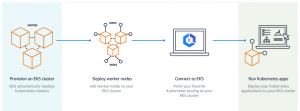
AWS Elastic Container Service for Kubernetes, AWS EKS, is a new AWS fully managed service running Kubernetes out-of-box on AWS without needing to install and operate / manage our own Kubernetes clusters. . Gone are the days when we (63% of Kubernetes workloads as per CNCF spent time and effort setting up and running / managing Kubernetes (Master and a cluster of workers) on AWS EC2 instances with no support from AWS service. Not only this, there was whole lot of high availability requirements in relation with Kubernetes which needed to be managed by running Kubernetes master on different availability zones (AZs). Key Features of AWS EKS Support for existing plugins and …
Kubernetes Interview Questions and Answers – Set 1

This page represents practice test consisting of objective questions on Kubernetes. The practice test can prove to be very helpful if you are preparing to take Certified Kubernetes Administrator (CKA) certification examination in near future. It covers the Core Concepts from CKA certification exam syllabus. Those preparing for interviews in relation with Kubernetes or cloud-native apps would find these questions to be useful enough. These questions can prove to be useful for interns / freshers / beginners. These questions are related with some of the following topics: Introduction to Kubernetes Kubernetes objects Kubernetes controllers Below are other practice tests on Kubernetes concepts such as Pods, Pods lifecycle, Container hooks lifecycle, Kubernetes 1.8 release concepts such as …
Kubernetes – When to use Which ServiceTypes?
Kubernetes supports different kinds of service types such as following: ClusterIP: The service of type, ClusterIP, can only be exposed to other services running within the same Kubernetes cluster. The default ServiceType is ClusterIP. NodePort: The service of type, NodePort, can be exposed externally at a static port. The service address would look like NodeIP:NodePort. External APIs can invoke the NodePort services. LoadBalancer: The service of type, LoadBalancer, can be exposed externally using cloud providers’ load balancer. ExternalName: The service of type, ExternalName, is mapped to an external name, such as helloapp.vitalflux.com.
Kubernetes – Port, Targetport and NodePort
When working with Kubernetes Service, you will come across some of the following terminologies: Port: Port is the port number which makes a service visible to other services running within the same K8s cluster. In other words, in case a service wants to invoke another service running within the same Kubernetes cluster, it will be able to do so using port specified against “port” in the service spec file. Target Port: Target port is the port on the POD where the service is running. Nodeport: Node port is the port on which the service can be accessed from external users using Kube-Proxy. Take a look at following spec defining a …

I found it very helpful. However the differences are not too understandable for me